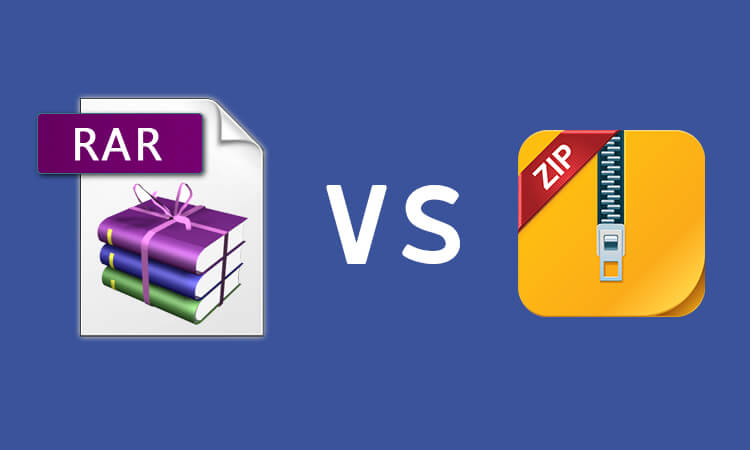For archiving files around 5GB, the best choice between RAR and ZIP depends on your priorities (compression efficiency, compatibility, speed, etc). Here's a detailed comparison to help you decide:
✅ 1. Compression Efficiency
- RAR: Better compression (smaller file size)
- ZIP: Slightly larger files than RAR
🔹 Winner: RAR, if you want smaller files
✅ 2. Speed
- ZIP: Faster to compress and extract (especially with built-in tools)
- RAR: Slower, especially at high compression levels
🔹 Winner: ZIP, if you want speed
✅ 3. Compatibility
- ZIP: Universal support (Windows, macOS, Linux, Android, iOS)
- RAR: Requires special tools like WinRAR, 7-Zip
🔹 Winner: ZIP, if you need maximum compatibility
✅ 4. Error Recovery
- RAR: Supports recovery records (can repair damaged archives)
- ZIP: No built-in recovery
🔹 Winner: RAR, if you want error recovery
✅ 5. Splitting Files
Both support splitting into volumes (e.g., 1GB chunks), but:
- RAR: Native and easier to manage multi-part archives
- ZIP: Possible but less efficient and less common
🔹 Winner: RAR, if you want to split large files
✅ 6. Security
- Both support password protection and AES encryption.
- RAR supports slightly stronger encryption settings by default.
🔹 Winner: RAR, slightly better for security
🔚 Recommendation
| Situation | Recommended Format |
|---|---|
| Need maximum compatibility | ZIP |
| Want best compression + recovery | RAR |
| Need to split archive into parts | RAR |
| Working in cross-platform environments | ZIP |
💡 Summary:
If you're archiving for backup and storage, use RAR.
If you're sharing files with many users across different systems, use ZIP.
